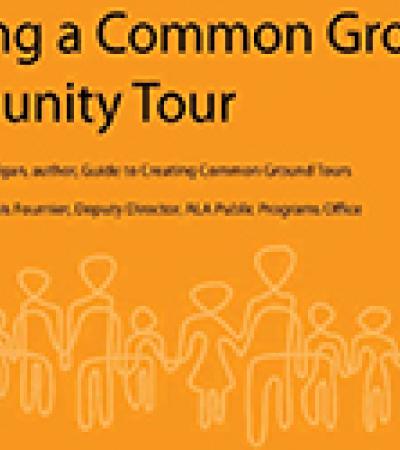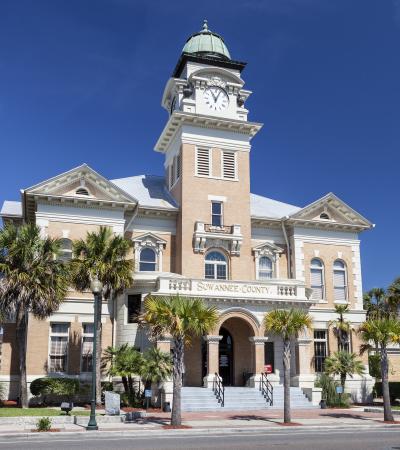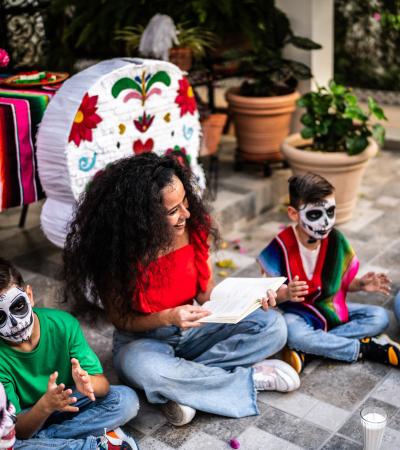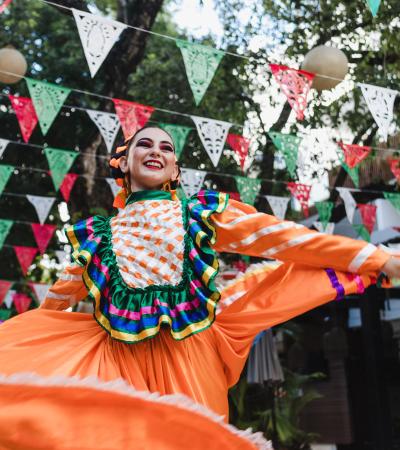Little Havana Walking Tour, a three-hour tour of the world-renowned Miami neighborhood, was one of the events developed for Latino Americans: 500 Years of History, a grant offered by ALA and the National Endowment for the Humanities (NEH).
The participants were treated to an amazing wealth of knowledge about Little Havana’s significance to Miami’s Cuban community and its many historical, political and cultural connections. They were also informed of the contributions of Central Americans and others from Latin America, the Caribbean and the Little Havana neighborhood itself. During the tour, participants were treated to freshly brewed Cuban coffee and freshly squeezed guarapo (sugar cane juice). The tour guide — Corinna Moebius, co-author of “A History of Little Havana” — had a book signing during the last 15 minutes of the tour.
Advanced Planning
I started the planning process in February 2015 when I applied for the Latino Americans: 500 Years of History grant. As part of this process, I contacted Latino scholars both on and off campus, shared information about the grant, asked for their participation and also requested referrals for other scholars. Additionally, I contacted several local media outlets about promoting the events and the cost for promotion. I was able to get three partners and acquired a letter of commitment from each of them.
For the walking tour, which was our fourth event for the Latino Americans celebration, we had some challenges. One of those challenges was communicating with the legal office on campus. The legal office required a notarized release and partnership agreement, which involved several weeks of back-and-forth communication. I also contacted the legal office to request a legal waiver document for participants. Instead, I was provided with a general legal waiver, which I had to edit to reflect this event.
Registering participants was also a bit of a challenge. I contacted the IT department to request an email account for the registration of interested participants, and more than the stated limit emailed or called to register. I confirmed registration for the first 30 participants and sent them the legal waiver document, asking them to read carefully, sign and return it. The rest of the interested participants were put on a wait list. Some of those on the wait list were able to go on the tour because there were some cancellations up to an hour before the tour started.
Marketing
To promote the event to the South Florida community, the library collaborated with the Miami New Times, which provided 20,000 ad impressions on its website and two weekly listings in its promotional newsletter to 34,000 subscribers. The marketing department on campus promoted the event using local media and social media. A 24-by-36-inch poster was placed by the library’s first-floor entrance.
Budgeting
The budget for the event was $810. The tour guide’s fee was $540 ($18 per person for 30 participants). The Miami New Times fee was $270. I also purchased a library copy of “A History of Little Havana” with grant funds and got it signed by the author.
Day-of-event Activity
I picked up three participants on my way to the tour to avoid the challenge of parking in a crowded neighborhood, but parking was still an issue since there was an art event and film festival taking place in Little Havana. We got to the arranged starting location at Tower Theatre a few minutes before the start of the tour and met the tour guide, Corrina, in person for the first time.
I checked for registered participants and collected signed waivers from those who were unable to email them prior to the event. There were a few participants who were not registered, but this was not a problem, as there were a few no-shows. I gave those who were not registered the waiver form and asked them to read carefully and sign it. I informed participants of the need to have them complete the evaluation at the end of the tour.
Program Execution
Shortly after the tour started, afternoon showers came. Corrina, who also works at Little Havana Tours, guided the group into a cigar gift shop and continued the presentation about the gifts that were available for sale, including cigars and paintings. After the rain, we visited many historical sites. (View photos of the tour in a Photo Slideshow at right.)
- Domino Park
- a Cuban café, where we were served freshly brewed Cuban coffee
- Bay of Pigs Memorial Park
- a fruit shop, where we were served freshly squeezed sugar cane juice
- a Botanica shop
- a Havana shirt store
- a handmade cigar shop, where we were served freshly brewed Cuban coffee
- Cubaocho Museum and Performing Arts Center, where we saw musicians and dancers perform by the center’s entrance
- a Cuban ice cream store
After the tour, Corrina signed books while I handed out evaluations. I collected most of them, but some participants had to leave before the book signing and preferred to email them to me, which most of them did. Here are some of the questions we asked on the five-point Likert scale evaluation:
- Was the presenter knowledgeable about the topic?
- Was the presenter engaging and interesting?
- Did the presenter encourage participation/discussion?
- Was the presentation informative?
- Should the presentation be repeated?
- Would you recommend the presentation to someone?
The feedback from the evaluation was positive. Several participants stated they plan to use the tour guide whenever they have visitors and some plan to visit Little Havana again, including myself.
Advice
If you’re applying for a grant with a similar program, it’s important to schedule several months in advance to ensure a successful planning and application process. It was quite a challenge coordinating with everyone since Barry University required notarized release forms and partnership agreements from all partners and presenters. If your institution requires similar documents, this can take several months of back-and-forth communication, so it's important to get that process started as soon as possible.
Even though we planned for 30 participants, it’s a good idea to accept more than the limit because some of our registered participants didn’t show up. I would also recommend contacting registered participants for event confirmation before the day of the tour.
Supporting Materials
- Feedback (Coming Soon!)
- Programming Librarian Facebook Group












